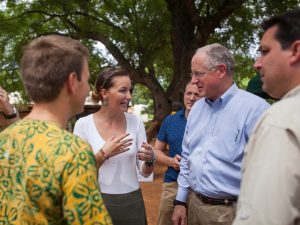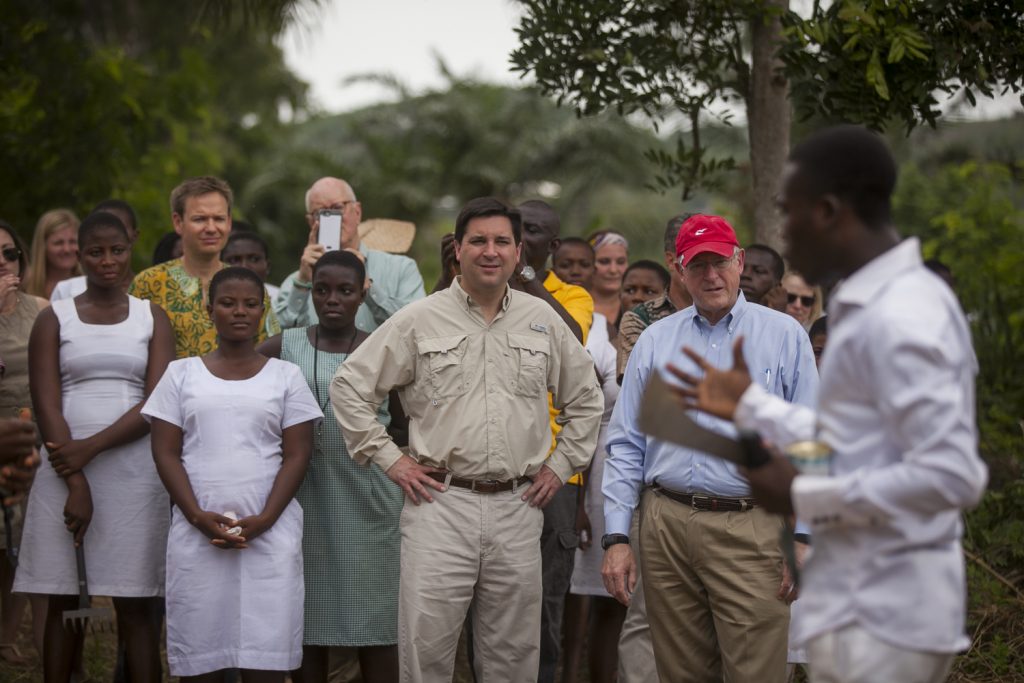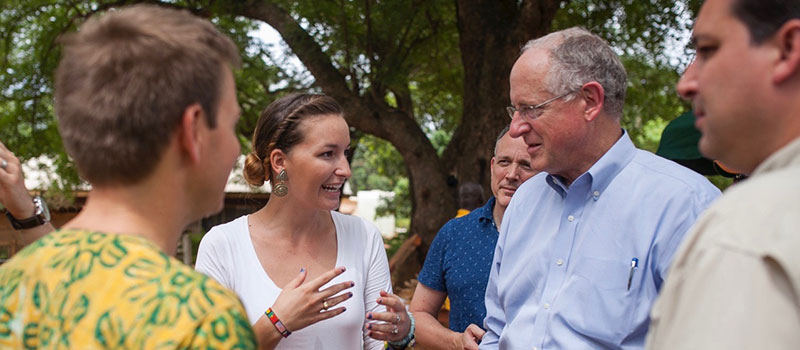US HOUSE OF REPRESENTATIVES AGRICULTURE COMMITTEE CHAIR AND CONGRESSIONAL DELEGATION EXPLORE GHANAIAN-AMERICAN AGRIBUSINESS INITIATIVES DESIGNED TO CREATE JOBS AND RESHAPE PERCEPTIONS OF FARMING
ACCRA, GHANA – Sunday, May 8, 2016. House Agriculture Committee Chair Mike Conaway (TX-11) visited AgriCorps and 4-H Ghana sites in the Eastern Region of Ghana with other Committee Members and leaders of American agriculture organizations.
Ahead of Ghana’s presidential elections this year, youth unemployment of over 25% has been cited as a key concern of candidates. As farming remains one of the largest sectors of employment for Ghanaians, the introduction of improved agricultural technology and methodology can dramatically increase income prospects for farm families and communities. Increased farm incomes can reverse the large rural-urban migration trends, which have led to massive urban unemployment over the years.

The US Congressional delegation visit – which included Representative Mike Conaway, Representative Dan Benishek (MI-1), and Representative David Rouzer (NC-7)– explored how agricultural development efforts, such as AgriCorps, promote food security and serve American interests abroad. AgriCorps, a US-based non-profit, sends young, American agriculture professionals into developing countries to share the agricultural education models of 4-H and the Future Farmers of America that transformed American agriculture over the past century. Texas rancher and AgriCorps Founder, Trent McKnight, said, “AgriCorps Fellows shift perceptions of agriculture in young people by teaching them how to make money through farming.”
The Congressional Delegation visited two 4-H Ghana Clubs and AgriCorps sites, listening to 4-H members talk about and demonstrate their agriculture and entrepreneurship projects. At Manya Krobo Senior High School, in Ghana’s rural Eastern Region, 4-H Club Secretary Naomi demonstrated how students developed a small business to sell rabbits and mushrooms to build revenues for new club projects. The 4-H Club Treasurer, Newman, shared his individual entrepreneurship project of manufacturing and selling 4-H key chains, which generated enough income to fund his first year of veterinary school. Members of the delegation also visited a 4-H demonstration farm comparing traditional farming methods of slash-and-burn against those developed at Ghana’s Center for No-Till Agriculture, an initiative supported by the Howard G. Buffett Foundation. While Manya Krobo 4-H projects are fully student led, they are advised by AgriCorps Fellow Paige Fuselier from Nacogdoches, Texas.
“Seeing the passion that Ghana 4-H members and AgriCorps Fellows have for agricultural education is inspiring,” said Chairman Conaway. AgriCorps currently has fifteen fellows serving as agriculture teachers in rural Ghanaian schools.
For more information regarding the visit, please reach out to Trent McKnight at trent.mcknight@agricorps.org.

ABOUT AGRICORPS
AgriCorps is a Peace Corps type organization that connects young, American agriculture professionals to the demand for experiential, school-based agricultural education in developing countries. AgriCorps is based in Throckmorton, Texas. For more information on AgriCorps, visit www.agricorps.org
ABOUT 4-H GHANA
Established in Ghana in the year 2000, 4H Ghana provides opportunity for young people to develop their livelihood and life skills. The fundamental principle of 4H is to make young people self-directing, productive and contributing members of society, through the methodology of “Learning by Doing” primarily in agriculture and entrepreneurship. Recently, 4-H Ghana received a $500,000 Bill & Melinda Gates Foundation grant on gender equity entitled “The Fifth H: Her.” For more information on 4-H Ghana, visit www.4hghana.org


